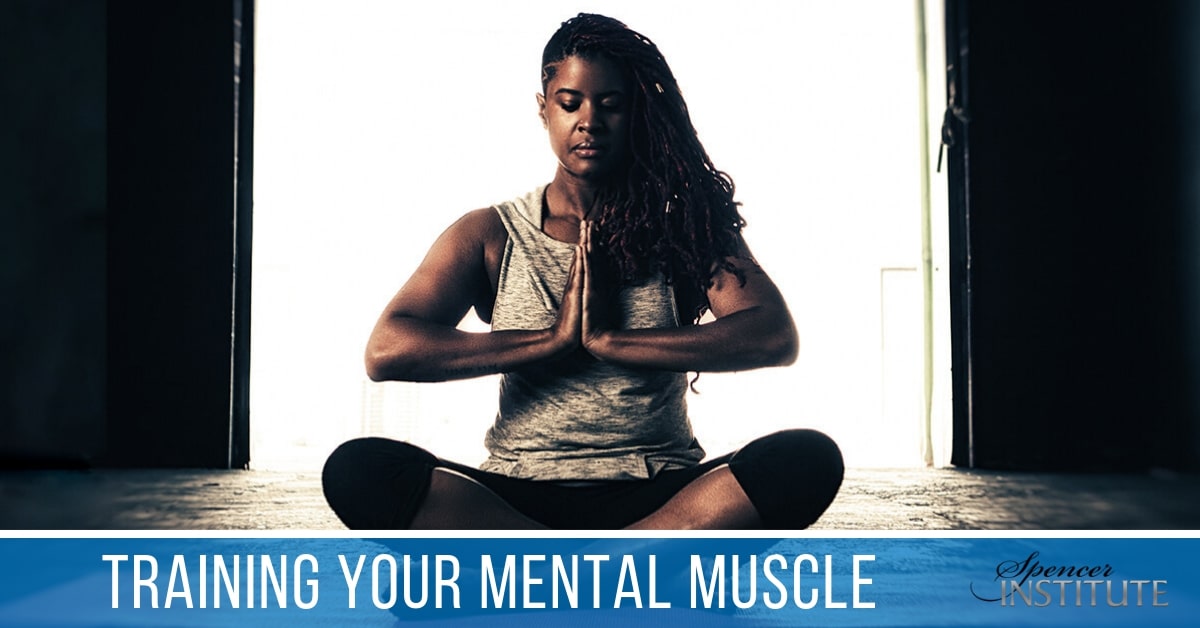 While physical conditioning and training is always a key component in your client’s preparation, more attention is being paid to an athlete’s mental conditioning, health and strength, and how meditation works to improve these. This makes complete sense when you consider the fact that the mind influences the way we move, behave, and perform on even the most subtle levels. The best athletes understand that their talent and skills won’t measure up if they aren’t mentally prepared come game day.
While physical conditioning and training is always a key component in your client’s preparation, more attention is being paid to an athlete’s mental conditioning, health and strength, and how meditation works to improve these. This makes complete sense when you consider the fact that the mind influences the way we move, behave, and perform on even the most subtle levels. The best athletes understand that their talent and skills won’t measure up if they aren’t mentally prepared come game day.
Learn more about the benefits of meditation for your athlete clients:
Reducing Your Athlete’s Stress Levels
Being relaxed increases the ability to remain calm under pressure and also improves alertness. Emotional stimulation can obstruct the athlete’s focus and the physical functioning of their body, which will often lead to a less than desirable result.
One study revealed that heightened stress levels lead to increased muscle tension and a delay in response time. Another recent study showed that the results of meditation are typically associated with reduced stress levels in addition to decreased levels of the stress hormone cortisol. This means that distraction or emotional turbulence can be set aside, enabling the athlete to focus on a sharp performance.
Improve Quality of Sleep
Sleep is a critical aspect of performance. Sleep is when the body recovers and the mind can rest. Many athletes do not get as much sleep as they should due to aches, pains, and high levels of stress. A lack of sleep has been shown to cause weight gain, negatively affect athletic performance, and result in an inability to focus. It can even lead to depression.
Athletes who are able to sleep better at night have been shown to perform better and experience better overall health. Improved quality and length of sleep are just another of the great benefits of meditation.
Boost Athletic Energy and Endurance
The most common factor when it comes to low energy is mental exertion. Fatigue is often related to stress and anxiety. Even if your athletes aren’t feeling stressed, you can be sure that their mind is always at work trying to figure something out. The higher levels of activity, the more energy that is required. This over-stimulation can eventually lead to intense mental and physical fatigue for your athlete.
By practicing meditation that utilizes visualization, athletic endurance can be greatly improved. Athletes who visualize accomplishing a specific goal, combined with the practice of deep breathing can help to train the body to work harder and for a longer period of time.

Your Sports Psychology Career
Sports Psychology Coaches have endless opportunities to work with athletes ranging from beginning to professional and all points in between. Some coaches build businesses working with youth athletes. Others specialize in sports such as triathlon. Other coaches work with teams in the college and pro ranks. There are no limits to what is possible for your career.
Spencer Institute certification programs are open to anyone with a desire to learn and help others. There are no prerequisites.
That’s it for now.
Take action!
PS: Click here to see many helpful business/career resources










